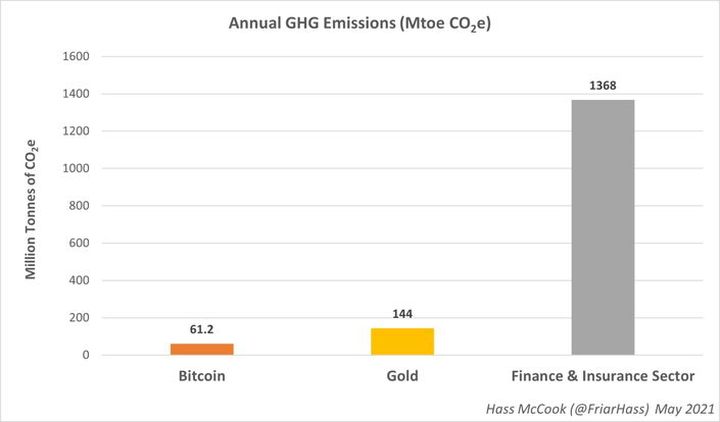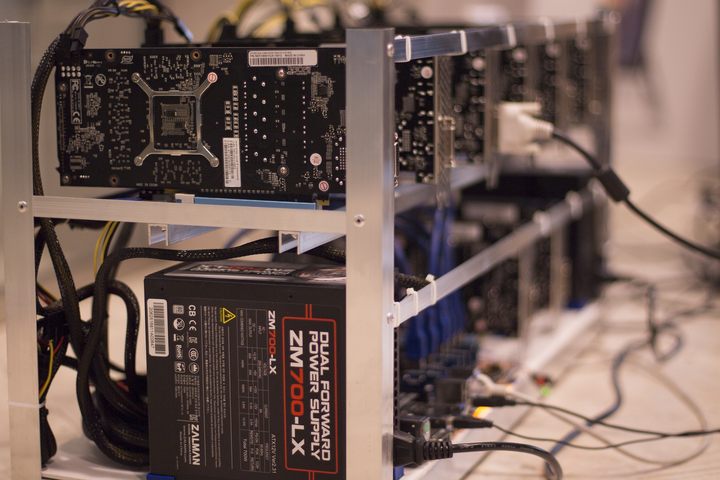Are cryptocurrencies threatening the power grid?. How cryptocurrencies reshape our everyday lives

- What's Cryptocurrency and How It Changes Our World?
- How much electricity do cryptocurrencies consume?
- Are cryptocurrencies threatening the power grid?
- Cryptocurrencies, or the assault on rare earth metals
- Cryptocurrencies – bad, good or ugly?
Are cryptocurrencies threatening the power grid?
Can we therefore say that cryptocurrencies jeopardize the energy system? Cryptocurrency proponents respond to such allegations in a variety of ways, but the following three seem to be the most popular:
- The traditional banking system also consumes gigantic amounts of energy.
- Cryptocurrencies primarily use renewable energy sources, and unused energy goes to waste anyway.
- We consume energy because we can and no one can do anything about it.
Cryptocurrencies vs. traditional banking
As The Guardian reported after Cambridge's Centre for Alternative Finances, one BTC transaction consumes energy comparable to 680,000 Visa card transactions. This means that if all the inhabitants of Detroit (about 637,601 people) would make a single card payment each, they would still use less energy than one BTC transaction.
Cryptocurrencies are sometimes compared to the traditional banking system, which, after all, is a huge network that consumes gigantic amounts of energy every day. However, this is not the most accurate comparison, as the role of banks is quite different from cryptocurrencies. BTC can be a means of payment, but it is not an alternative to the entire banking system itself – it's merely an alternative to money. BTC can, for example, replace the the United States Dollar, or Euros, but it won't replace a bank which admits credit, accepts deposits, and does all the bank stuff.
The popularity of cryptocurrencies, however, continues to grow, and their energy intensity and associated greenhouse gas emissions could become a major concern. Bitcoin Magazine estimates that the operation of bitcoin produces a carbon footprint twenty times smaller than the traditional banking system. At 1,368 million tons, the carbon dioxide generated by the banking and insurance system represents 3.6 percent of total global emissions. In this perspective, bitcoin doesn't appear a large ecological problem, but this is a biased look, which doesn't account for the scale of both systems. According to TechCrunch, there are about 1 million active BTC users every day, and some 106 million in the past decade. Electronic banking (which is just part of the entire banking system) provided services to 1.9 billion users in 2020, i.e. nearly 18 times the total estimated number of bitcoin users, and 1,900 times the daily number of BTC users.

If we were to pay with BTC or any other cryptocurrency for major purchases such as a car or a house, let alone everyday small transactions, its energy intensity would become a huge threat to the stability of current energy systems. This is not an insoluble problem, because with enough determination, mankind will switch to carbon-neutral energy within the coming decades. However, this will not happen overnight, and increased demand is a problem in and of itself. Increasing energy consumption seems to contradict to the general trend of reducing energy consumption and designing increasingly energy-efficient solutions in almost all areas of our lives.
Renewable energy sources in the service of cryptocurrencies
It's also often argued that cryptocurrencies simply make use of energy that would otherwise go to waste. However, one should be cautious about such declarations and verify their veracity.

China's hydropower plants produce far more energy than their consumers can absorb at peak times, and a similar situation exists in Iceland, which relies on hydro and geothermal power sources. In such cases, energy can indeed be cheap, and the surplus used to mine cryptocurrencies will not cause negative environmental effects. In such places, the worst-case scenario is graphics cards disappearing from store shelves.
However, when it comes to coal, gas or nuclear power plants, they increase or decrease energy production according to demand. As Sodar aptly pointed out when describing Ukraine's idea to use some of its nuclear power plant's capacity to mine cryptocurrencies, that means increasing fuel consumption. While nuclear power plants are free of CO2 emissions, burning gas and coal can hardly be called environmentally friendly.
Moreover, the stability of the cryptocurrency system running on renewables can be an issue. The surplus power mentioned in China's hydro power plants occurs only when river levels are highest – it can't run at full capacity 365 days a year. Basing cryptocurrencies solely on such energy sources would lead to cyclical changes in the performance of the system, which might not be able to serve all interested parties during the time of lowest energy production.
Individual liberty vs. the right to mine
The last argument relates to economic freedom and is based on the idea that cryptocurrency mining should not be regulated. If you pay for electricity, you should have no problem setting up dozens of graphics cards in your garage running non-stop without hurting anyone. However, as we try to explain in this text, the effects of massive cryptocurrency digging are most often indirect, and affect entire societies, or more broadly, the entire civilization.

Some time ago, Iran banned cryptocurrencies due to their devastating impact on the country's power grid. Low energy prices compared to other countries have caused cryptocurrency mines to spring up at a rapid pace and led to temporary outages. A similar situation on a local scale may have occurred in Ukraine, where energy-stealing miners posed a threat to the stability of the entire grid, according to Ukraine's Security Service (SBU).
Experience suggests that cheap energy combined with lack of regulation destabilizes the energy system and can be a nuisance for the locals at best, and a threat to life and public safety at worst. After all, power outages can also affect important infrastructure, and emergency power systems don't always kick in immediately.
